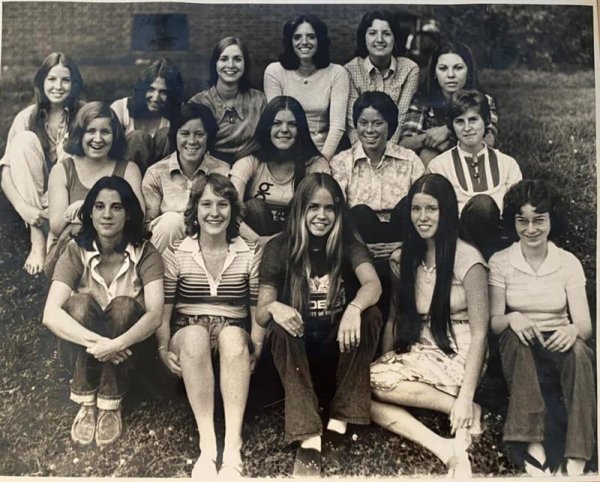
“Great oratory is timeless,” UVA politics instructor Mary Kate Cary told a crowd at UVA Reunions in May. “Throughout our history as a nation, speeches have started and ended wars, sparked political movements, memorialized our leaders, and enacted positive change.”
Cary, who served as White House speechwriter for George H. W. Bush from 1989 to 1992, spoke at the Karsh Institute’s “Speaking of Women” event—part of the UVA Reunions weekend celebrating the historic class of 1974, the University’s first to include women. Cary focused on speeches given by three specific American women: Senator Margaret Chase Smith (R-Maine); Representative Barbara Jordan (D-Texas); and First Lady Barbara Bush, wife of President George H. W. Bush.
In her "Declaration of Conscience" address to Congress in 1950, Chase Smith was a freshman senator and the only female at the time. She was the first to stand up to McCarthyism and defended every American’s right to hold unpopular beliefs. “The United States Senate has long enjoyed worldwide respect as the greatest deliberative body in the world. But recently that deliberative character has too often been debased to the level of a forum of hate and character assassination,” she said.
Jordan, a freshman member of Congress and a Black civil rights leader, eloquently reiterated the necessity of looking to the Constitution and the intent behind its words as guidance during the impeachment proceedings of Richard Nixon during the Watergate scandal in 1972.
Bush, as the commencement speaker for Wellesley College’s class of 1990, emphasized the importance of believing in something bigger than oneself, celebrating what life offers, and appreciating the human connections we make. Facing enormous protests from the students, she brought Soviet First Lady Riaisa Gorbachev with her and showed the world how America handles dissent peacefully.
“All three of these women stood up for what they believed in, didn’t worry about what others thought about them, and did the right thing when it really mattered,” said Cary. “Most of all, they changed the course of our democracy for the better– by standing up for American values we hold dear. We can all learn from them.”